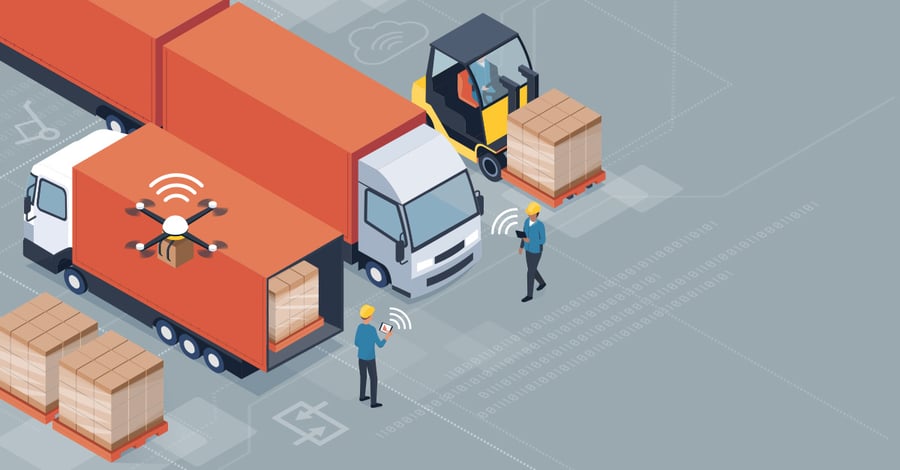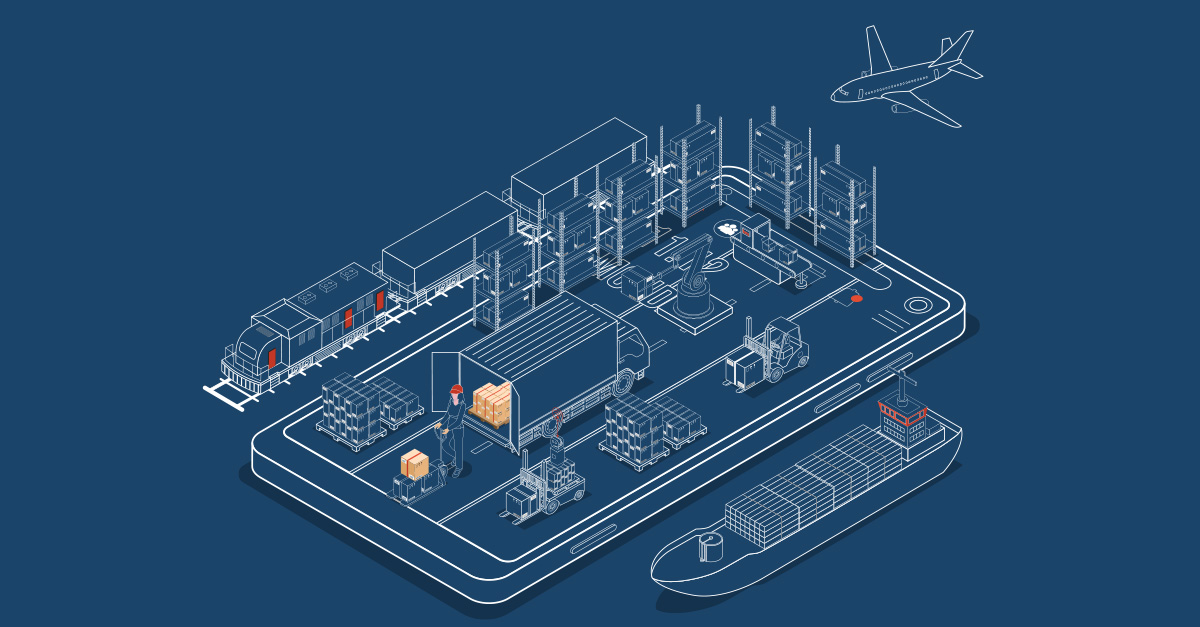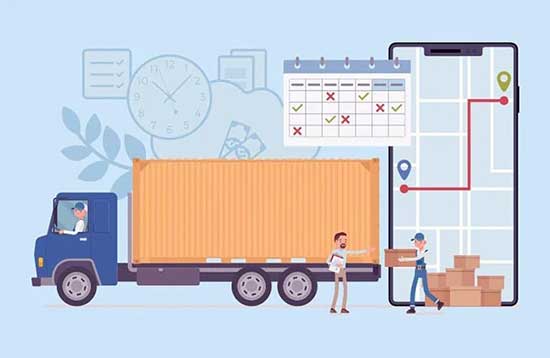

Logistics industry is critical for the economic growth of countries as it connects multiple elements of the economy and consists of warehousing, transportation and other supply chain solutions ranging from the suppliers to the end customers. The logistics industry is expected to grow sustainably across the globe in the next few years. For example, the logistics market of Australia was valued at USD 81.28 billion in 2021, and it is forecasted to reach USD 114.32 billion by 2027.
Recent years have seen a great advancement in the logistics industry in the areas like augmented and artificial intelligence, automation, analytics, and supply chain integration, to just name a few. These technologies are evolving faster than ever while startups with even advanced solutions and innovations continue to emerge at a rapid rate. However, attached to these innovations are the new standards and expectations, forcing the logistics companies to either adapt or fall behind.
It may seem challenging to keep up with the different technological advancements in the digital age, especially as there seems to be something new at every single turn. Nonetheless it is seamless with an advanced Logistics system and an integrated fleet management system. Such efficient systems help businesses stay competitive while enhancing operational efficiencies.
Why keeping up with advancements in the transportation and logistics industry matter?
Advanced technological solutions have majorly impacted the logistics industry. Majority of pressure comes from the customers in the form enterprises and individuals, who demand their products or services to be delivered faster and at a lower cost than ever before. Moreover, as the customers become more technologically savvy, they also want real-time visibility and communication and greater customer service.
Therefore, companies in the logistics and the supply chain sphere cannot avoid preparing themselves for all these bigger changes with innovations.
Falling behind the latest technological solutions is no more an option for the businesses, as it is next to impossible to fulfill the consumer demand without advanced logistics system and fleet management software. Only the companies that evolve with the advancements will survive in the long-run.

Signs businesses need to switch their logistics technology
Lack of visibility into supply chain
Without proper visibility into the supply chain, businesses cannot make informed decisions. If a business lacks visibility into its shipping status, order status or inventory levels, it is time to upgrade its logistics system.
By leveraging a robust Logistics ERP and fleet management system, businesses can gain complete visibility into their operations and make data-driven decisions that reduce costs and improve efficiency. Real time supply chain visibility is a must for existence in the uberized world. Watch the complete webinar to gain an in-depth understanding about the ‘why’ and ‘how’.
Difficulty in scaling
As a business grows, its logistics needs also increase and become more complex. If the logistics system of a business cannot keep up with its growth and has a negative impact on the operations, it needs to switch to a more scalable platform. By choosing a logistics system that can effectively handle increased complexity and volume, businesses can ensure that their logistics operations remain efficient and effective.
Lack of supporting features and integration capabilities
Logistics is a complex process involving multiple stakeholders, including carriers, suppliers, and customers. And due to the fragmented nature of the industry, all these stakeholders often rely on different systems. Though these stakeholders aren’t operating within the same system, a thoughtful approach to the integrations allows the real-time information to be shared across all the groups seamlessly, irrespective of where they manage their supply chain needs. While every integration type may not be needed across all the companies, a system that can seamlessly integrate via API is needed.
It is important for the businesses leverage the logistics ERP with supporting features like transport management, hub management, warehouse management and rating & billing. A system integrate with such features can enhance operational efficiency, streamline collaboration and communication between the stakeholders, and reduce the risk of delays and errors.
Missing appointments and delayed deliveries
In today’s competitive environment, providing excellent customer experience is important for success. However, if businesses face problems like vehicles getting stuck in traffic or developing mechanical problems on the road, they might not be able to provide the experience which they ideally should. All these factors can push the business to either cancel the appointments or arrive late.
Therefore, to develop strong relationships with the new clients and keep the existing ones happy, it is essential to upgrade the fleet and asset management software.
An advanced logistics system like Ramco’s all-integrated fleet management system enables visualizing the current situation and tracking shipments in real time, thus helping avoid gridlocks. It also helps in avoiding unexpected breakdowns as the company will be alerted on time when a vehicle needs maintenance.
Ramco’s fleet management solution comes with in-built location and navigation intelligence. This feature helps with accurate ETAs, weather patterns, and turn-by-turn navigation. Moreover, it features a ‘Driver app’ that supports booking request creations, approvals, invoices, alerts, and proof of delivery. Thus, facilitating on-time delivery and avoiding missing appointments.
Conclusion
There are many companies in the marketplace that make tall claims about the logistics ERP and the things they can do for the businesses, making it difficult for you to determine if the technology will perform the way you need it to. However, do not miss out on evaluating the system at your end.
While evaluating the logistics system, it is critical to consider the value the fleet management system will provide to your customers as well as to your own operations teams. If a solution provider leads you to believe that it can improve your service level and increase the visibility of your fleet while reducing costs and manual work, it is likely worth considering.



